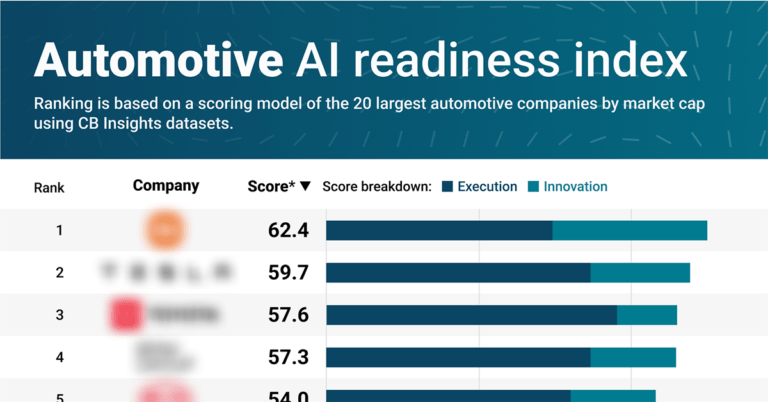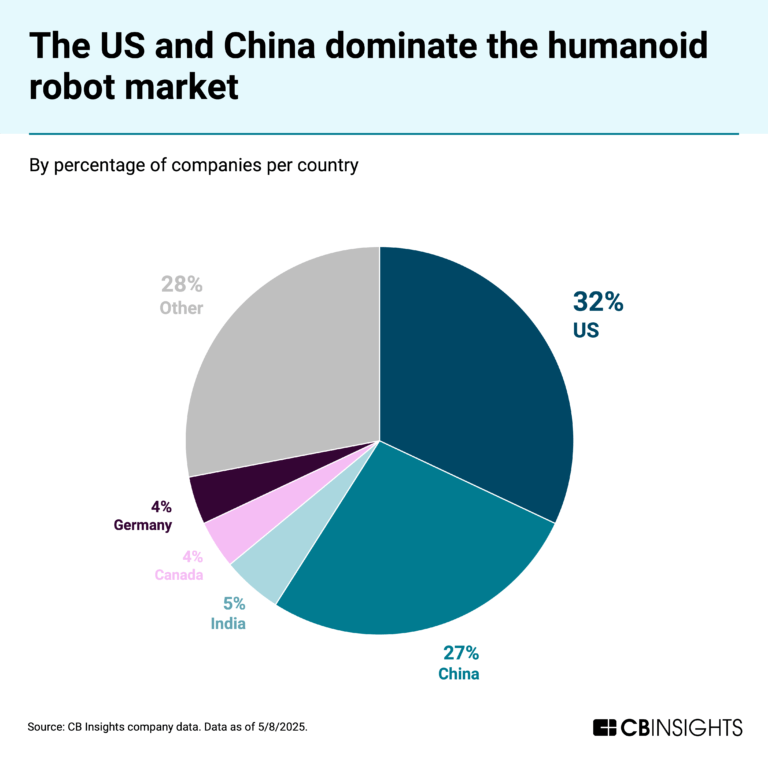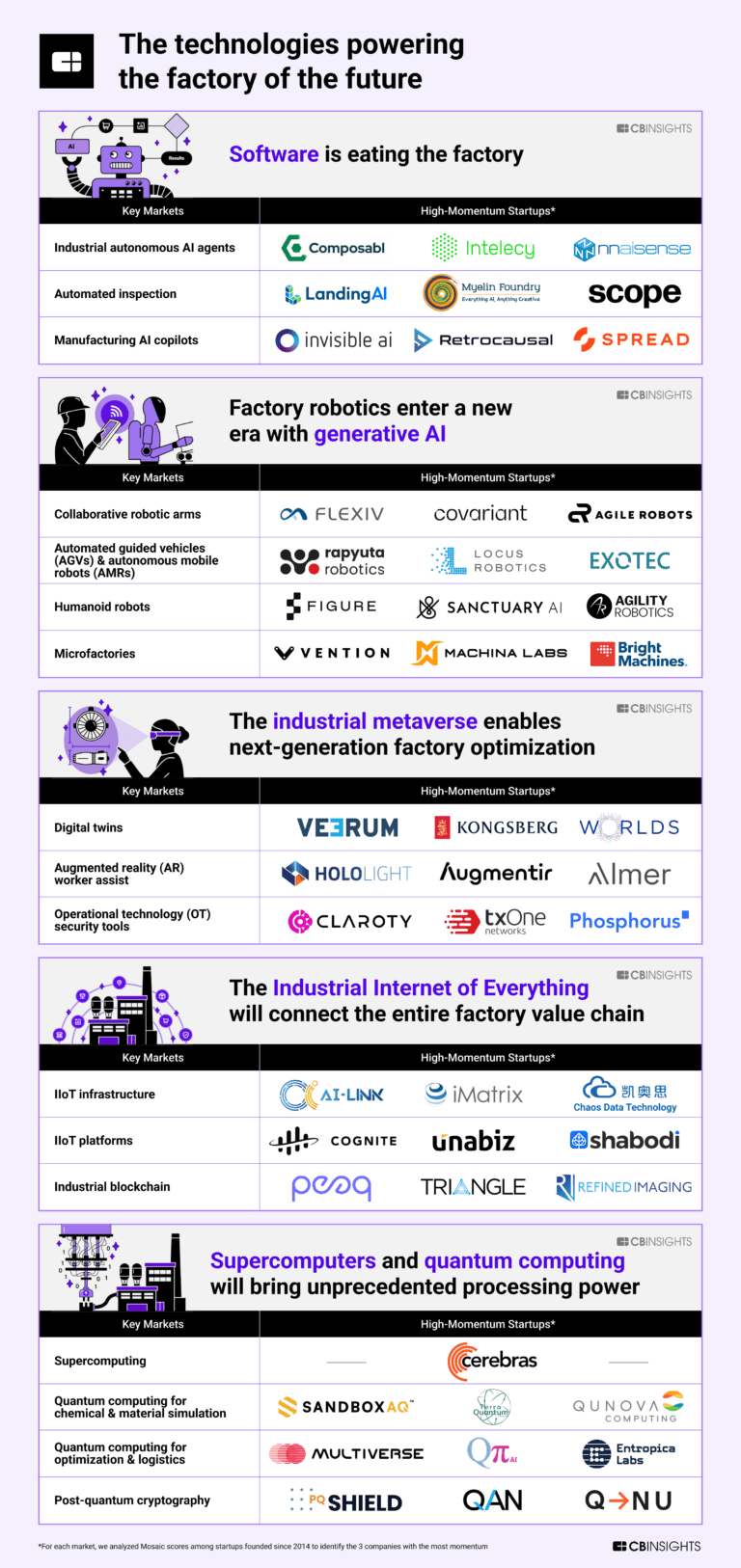
Samsung
Founded Year
1969Stage
IPO | IPODate of IPO
6/11/1975Market Cap
631903.91BStock Price
97200.00Revenue
$0000About Samsung
Samsung specializes in consumer electronics, smartphones, and digital appliances. The company offers a variety of products, including foldable smartphones with advanced camera systems, tablets, wearables, and home appliances, integrated with artificial intelligence. Samsung was formerly known as Samsung Electronics Industry Co. It was founded in 1969 and is based in Suwon-si, South Korea.
Loading...
ESPs containing Samsung
The ESP matrix leverages data and analyst insight to identify and rank leading companies in a given technology landscape.
The spherical & rolling robots market provides compact ground robots and throwable systems that use rolling locomotion to deliver remote sensing and reconnaissance in hazardous or hard-to-reach environments. These solutions include spherical robots, ball-shaped mobile robots, and throwable rolling robots and camera balls that support perimeter security, military and law enforcement reconnaissance,…
Samsung named as Leader among 4 other companies, including ReconRobotics, Sphero, and Bounce Imaging.
Loading...
Research containing Samsung
Get data-driven expert analysis from the CB Insights Intelligence Unit.
CB Insights Intelligence Analysts have mentioned Samsung in 16 CB Insights research briefs, most recently on Jul 23, 2025.

Oct 8, 2024
3 trends to watch in the hot AI security marketSep 23, 2024
The semiconductor manufacturing market map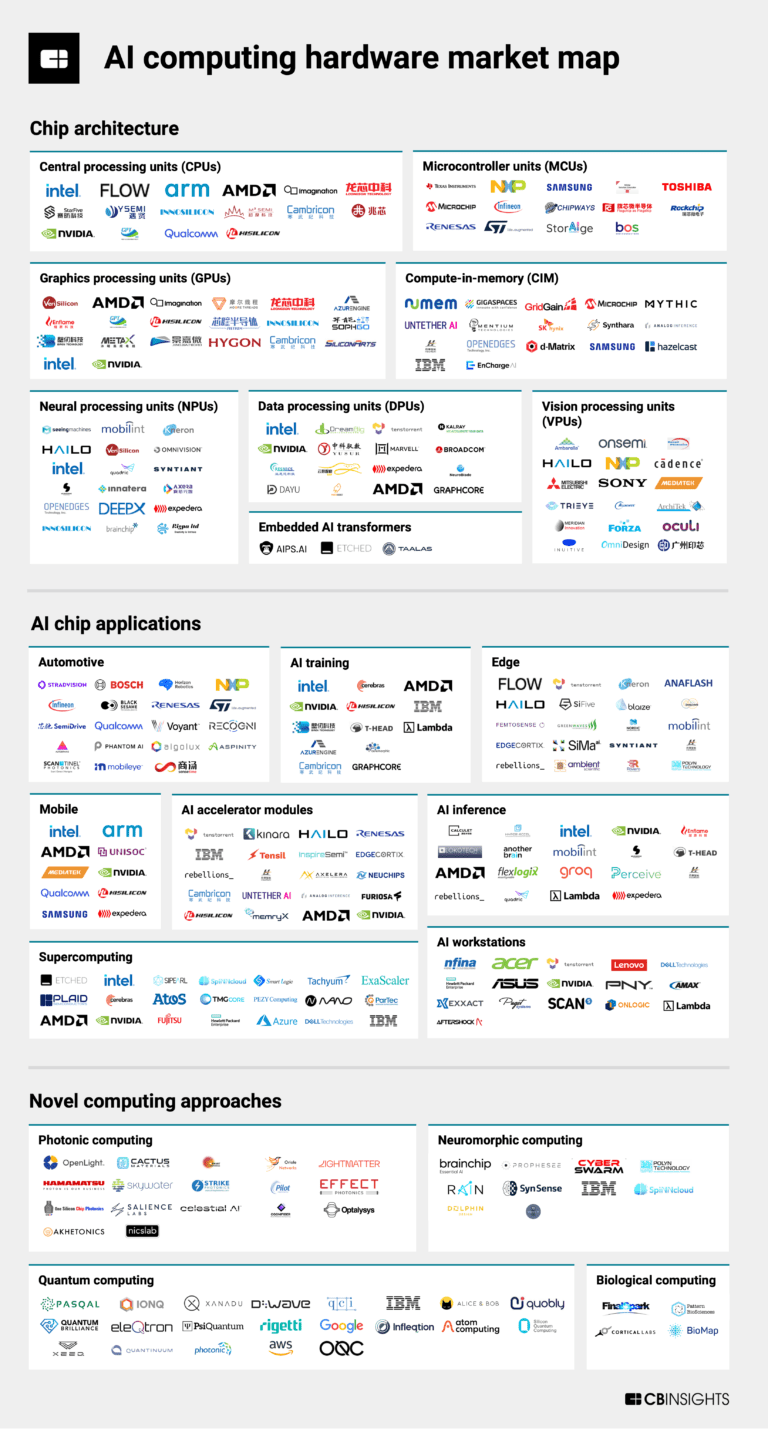
Sep 13, 2024
The AI computing hardware market map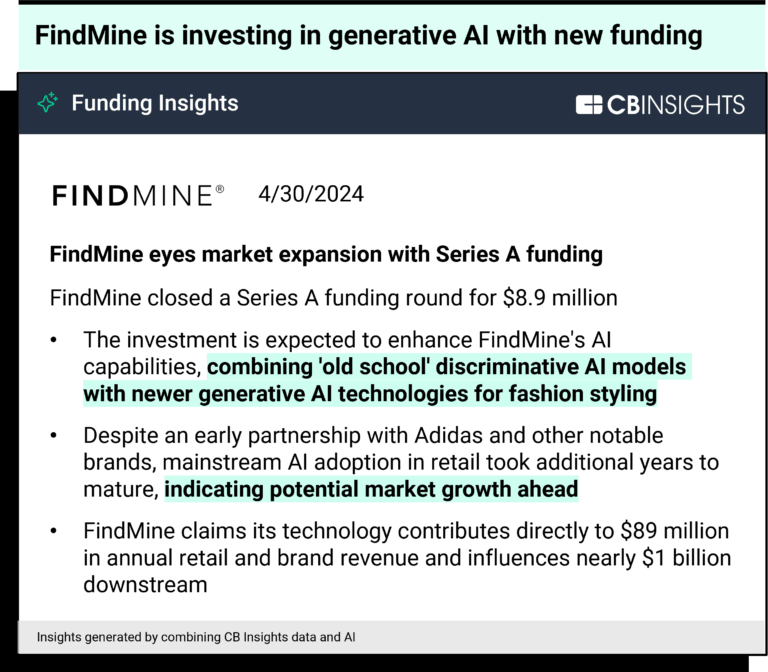
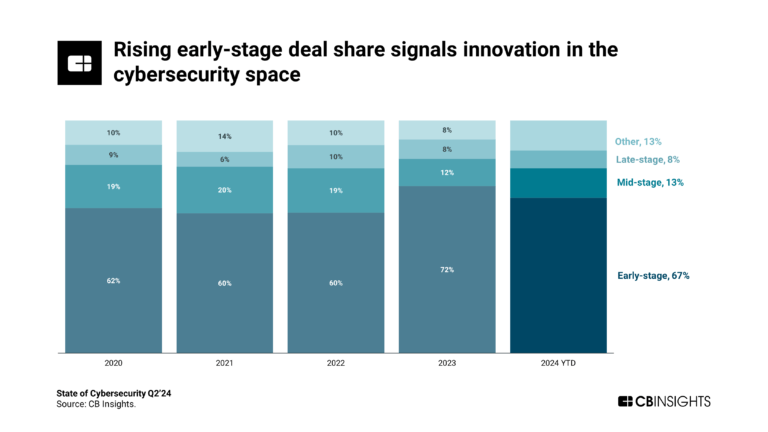
Expert Collections containing Samsung
Expert Collections are analyst-curated lists that highlight the companies you need to know in the most important technology spaces.
Samsung is included in 6 Expert Collections, including Smart Cities.
Smart Cities
3,531 items
Conference Exhibitors
5,302 items
Semiconductors, Chips, and Advanced Electronics
7,494 items
Companies in the semiconductors & HPC space, including integrated device manufacturers (IDMs), fabless firms, semiconductor production equipment manufacturers, electronic design automation (EDA), advanced semiconductor material companies, and more
Future of the Factory (2024)
436 items
This collection contains companies in the key markets highlighted in the Future of the Factory 2024 report. Companies are not exclusive to the categories listed.
NRF Big Show 2025: Exhibitors
959 items
HLTH 2025 Exhibitors
878 items
A look at the HLTH Vegas 2025 exhibitor list we’ve been building so your team can start scanning for relevant companies.
Samsung Patents
Samsung has filed 10000 patents.
The 3 most popular patent topics include:
- wireless networking
- semiconductor device fabrication
- computer memory

Application Date | Grant Date | Title | Related Topics | Status |
|---|---|---|---|---|
2/12/2019 | 4/8/2025 | Computer memory, Graph theory, Data management, Metadata, Graph minor theory | Grant |
Application Date | 2/12/2019 |
|---|---|
Grant Date | 4/8/2025 |
Title | |
Related Topics | Computer memory, Graph theory, Data management, Metadata, Graph minor theory |
Status | Grant |
Latest Samsung News
Nov 18, 2025
Even as Korea’s largest conglomerates commit record levels of investment to secure technological leadership in AI, semiconductors, and energy innovation, the country’s economic progress continues to hit the same wall: regulation. While capital and talent are ready, businesses warn that without decisive reform to remove outdated bureaucratic barriers, Korea risks losing its competitive edge to faster-moving global rivals. Korea’s Major Corporations Announce Record Investments, But Frustrations Mount Korea’s four largest conglomerates — Samsung, SK, Hyundai Motor, and LG — have revealed plans to invest more than 803 trillion won (about USD 580 billion) over the next five years in emerging industries such as artificial intelligence, semiconductors, electric vehicles, space, and nuclear energy. The Korea Economic Research Institute (KERI) reported on November 17, 2025, that Korea’s ten major export sectors are on track to be overtaken by China within five years unless regulatory and labor reforms accelerate. Executives and economists agree on the central problem: excessive and outdated regulations, often referred to in Korea as “electric pole regulations” — deeply rooted barriers in permitting, finance, and labor — that continue to restrict innovation despite years of policy promises. Licensing Delays and Bureaucratic Gridlock Slow Industrial Projects One of the most pressing concerns is the prolonged process of securing environmental and infrastructure approvals. The private sector notes that Korea’s environmental review procedures can take up to three times longer than in other OECD economies. A case frequently cited is SK Hynix’s semiconductor cluster in Yongin, first announced in 2019 but delayed nearly four years before breaking ground due to protracted assessments and local government reviews. These procedural delays, which affect high-demand infrastructure like AI data centers, semiconductor fabs, and battery plants, directly weaken Korea’s competitiveness in time-sensitive technology markets. AI-generated illustration of SK Hynix’s case. Reform Priorities: Finance, Labor, and Energy Stability Business groups identify five critical reform areas necessary to unlock new investment momentum: Easing financial–industrial separation to strengthen corporate venture capital (CVC) activity and collaboration with startups. Amending the Yellow Envelope Law to restore labor flexibility and minimize cascading subcontractor lawsuits. Expanding R&D tax credits and depreciation benefits to encourage innovation. Ensuring stable energy supply by investing in nuclear power and transmission infrastructure. Modernizing legal frameworks governing robotics, AI, and autonomous driving to support emerging technologies. Professor Kim Jae-goo of Myongji University, former president of the Korean Academy of Business Administration, noted that loosening the financial–industrial divide is essential for innovation-driven growth: “If companies are to commercialize open innovation and develop hybrid business models, Korea must ease financial–industrial separation and further strengthen CVC operations.” A representative from the Korea Chamber of Commerce and Industry (KCCI) also stated, “In Korea, the larger a company gets, the heavier the regulatory burden — which is one of the main reasons SMEs hesitate to scale. As companies grow, they should receive stronger incentives.” Labor and Legal Uncertainty Threaten Innovation Agility The Yellow Envelope Law, intended to protect labor rights, has raised new concerns about legal uncertainty for large-scale projects involving subcontractor networks. That is why the Korea Employers Federation warned that lawsuits targeting parent companies in multi-tier supply chains could dampen innovation investment, particularly in manufacturing-heavy sectors. A KEF representative commented, “Many industries depend on layered subcontracting systems. If legal conflicts continue to target primary contractors, investment momentum will inevitably weaken.” Energy Security and Policy Consistency Remain Critical for AI and Semiconductor Growth As AI and chip manufacturing demand unprecedented energy capacity, power supply stability has become a central policy issue. Rising energy costs and slow grid expansion are prompting calls for renewed investment in nuclear power as a reliable base-load source to sustain industrial competitiveness. Meanwhile, new industries like robotics and autonomous vehicles are struggling under outdated legal frameworks that fail to define safety or liability standards. As a result, many Korean companies are conducting technology trials overseas and re-importing validated solutions back into domestic markets — a costly workaround that slows innovation. Regulatory Reform Determines Korea’s Next Industrial Chapter The Korea Economic Research Institute emphasized that executing these multi-trillion-won investment plans will require a scale of capital mobilization “close to half of the national GDP.” The institute noted that such growth cannot rely solely on private equity or bond markets, calling for deep structural deregulation to remove disincentives built into Korea’s commercial and labor laws. This includes long-debated reforms to the Serious Accidents Punishment Act and Commercial Act, which businesses argue have added compliance complexity without improving safety or transparency outcomes. Startups and Global Partners Are Watching The push for deregulation extends far beyond the conglomerates (chaebols). Korea’s broader innovation ecosystem — including startups, research institutions, and global investors — sees regulatory simplification as a prerequisite for sustainable competitiveness. If reforms progress, corporate venture capital expansion could deepen cooperation between large manufacturers and emerging AI or robotics startups, unlocking new commercial pathways across Korea’s industrial value chains. Conversely, if red tape persists, Korea risks seeing more startups relocate abroad or rely on foreign investment ecosystems, particularly in the United States, Japan, and Singapore, where industry–policy coordination is faster. Regulatory Reform as Korea’s True Growth Catalyst Korea’s investment ambitions show that capital is no longer the constraint — the bottleneck lies in how effectively the country can remove legacy regulations that slow innovation. Because eventually, the outcome of Korea’s regulatory reform agenda will determine how quickly Asia’s most advanced manufacturing economy adapts to the era of AI-driven industry. At last, whether Seoul succeeds in aligning bold investment with policy modernization will define Korea’s long-term position — not just in semiconductors or AI, but in shaping the next global industrial order. – Stay Ahead in Korea’s Startup Scene – Get real-time insights, funding updates, and policy shifts shaping Korea’s innovation ecosystem.
Samsung Frequently Asked Questions (FAQ)
When was Samsung founded?
Samsung was founded in 1969.
Where is Samsung's headquarters?
Samsung's headquarters is located at 129, Samsung-ro, Yeongtong-gu, Suwon-si.
What is Samsung's latest funding round?
Samsung's latest funding round is IPO.
Who are the investors of Samsung?
Investors of Samsung include Verizon Ventures, Samsung Catalyst and NVIDIA Connect Program.
Who are Samsung's competitors?
Competitors of Samsung include Toshiba, Dell Technologies, Xiaomi, Sharp, Google and 7 more.
Loading...
Compare Samsung to Competitors

Huawei operates as a provider of information and communications technology (ICT) infrastructure and smart devices, operating within the technology sector. The company offers a range of products and services, including telecom networks, information technology (IT) solutions, smart devices, and cloud services. Huawei serves sectors such as telecommunications, education, finance, and urban infrastructure. It was founded in 1987 and is based in Shenzhen, China.

BBK Electronics operates as a consumer electronics brand. The company's main offerings include the development and manufacturing of consumer electronics. It specializes in audio-video equipment, home entertainment products, and home appliances. It was founded in 1998 and is based in Shenzhen, China.

OPPO focuses on smart device innovation in the consumer electronics sector. The company offers a range of products, including smartphones, audio devices, wearables, and tablets, all designed with user-friendly software and services. The company's primary customers include individuals seeking personal electronics and technology enthusiasts. It was founded in 2004 and is based in Shenzhen, China.

Samsung Semiconductor specializes in semiconductor solutions and operates in the technology sector. The company offers a portfolio including dynamic random access memory (DRAM), solid state drive (SSD)s, processors, image sensors, and display integrated circuit (IC)s. Samsung Semiconductor serves various sectors including consumer electronics, automotive, and networking. It was founded in 1974 and is based in San Jose, California.

Toshiba Group focuses on energy, social infrastructure, electronic devices, and digital solutions within various business sectors. The company provides products and services related to energy management, infrastructure development, and electronic components. Toshiba was formerly known as Tokyo Shibaura Electric. It was founded in 1875 and is based in Kanagawa, Japan.
Loading...

